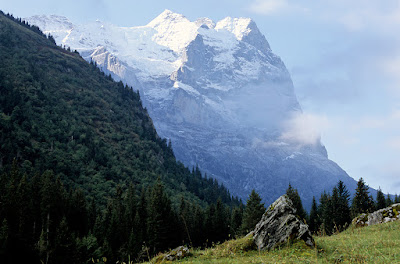Ink: From Johann Peter Eckermann's Conversations of Goethe with Eckermann and Soret, translated by John Oxenford, George Bell & Sons, London, 1883.
I turned the conversation back to Shakspeare. "When
one, to some degree, disengages him from English literature,"
said I, " and considers him transformed into a German, one
cannot fail to look upon his gigantic greatness as a miracle.
But if one seeks him in his home, transplants oneself to the
soil of his country, and to the atmosphere of the century in
which he lived ; further, if one studies his contemporaries,
and his immediate successors, and inhales the force wafted
to us from Ben Jonson, Massinger, Marlow, and Beaumont
and Fletcher, Shakspeare still, indeed, appears a being of
the most exalted magnitude ; but still, one arrives at the
conviction that many of the wonders of his genius are, in
some measure, accessible, and that much is due to the powerfully productive atmosphere of his age and time."
"You are perfectly right," returned Goethe. "It is with
Shakspeare as with the mountains of Switzerland. Transplant Mont Blanc at once into the large plain of Lüneburg
Heath, and we should find no words to express our wonder
at its magnitude. Seek it, however, in its gigantic home,
go to it over its immense neighbours, the Jungfrau, the Finsteraarhorn, the Eiger, the Wetterhorn, St. Gothard,
and Monte Rosa; Mont Blanc will, indeed, still remain a
giant, but it will no longer produce in us such amazement."

No comments:
Post a Comment